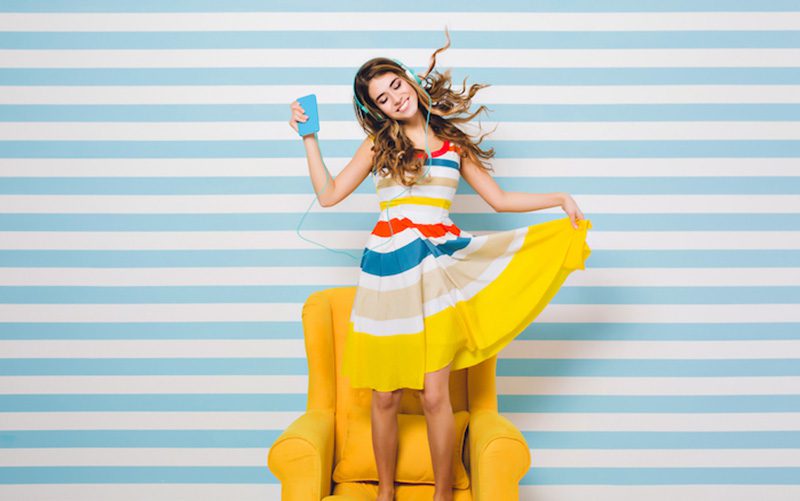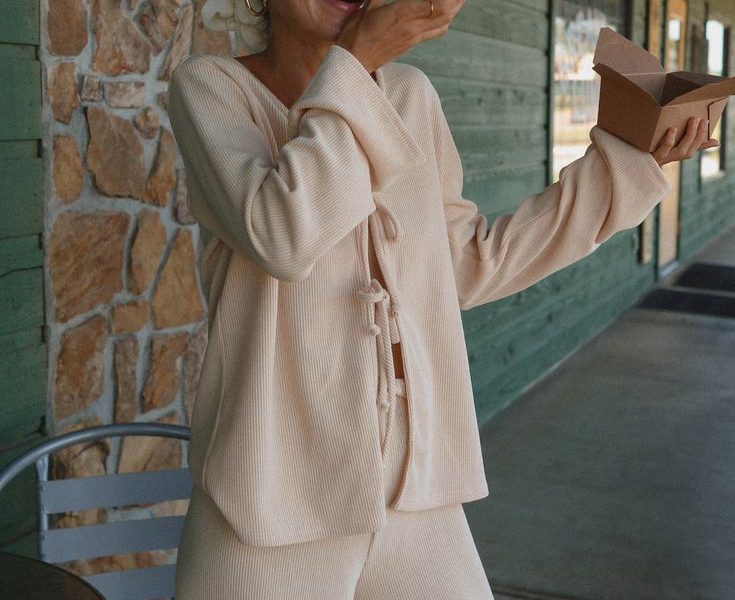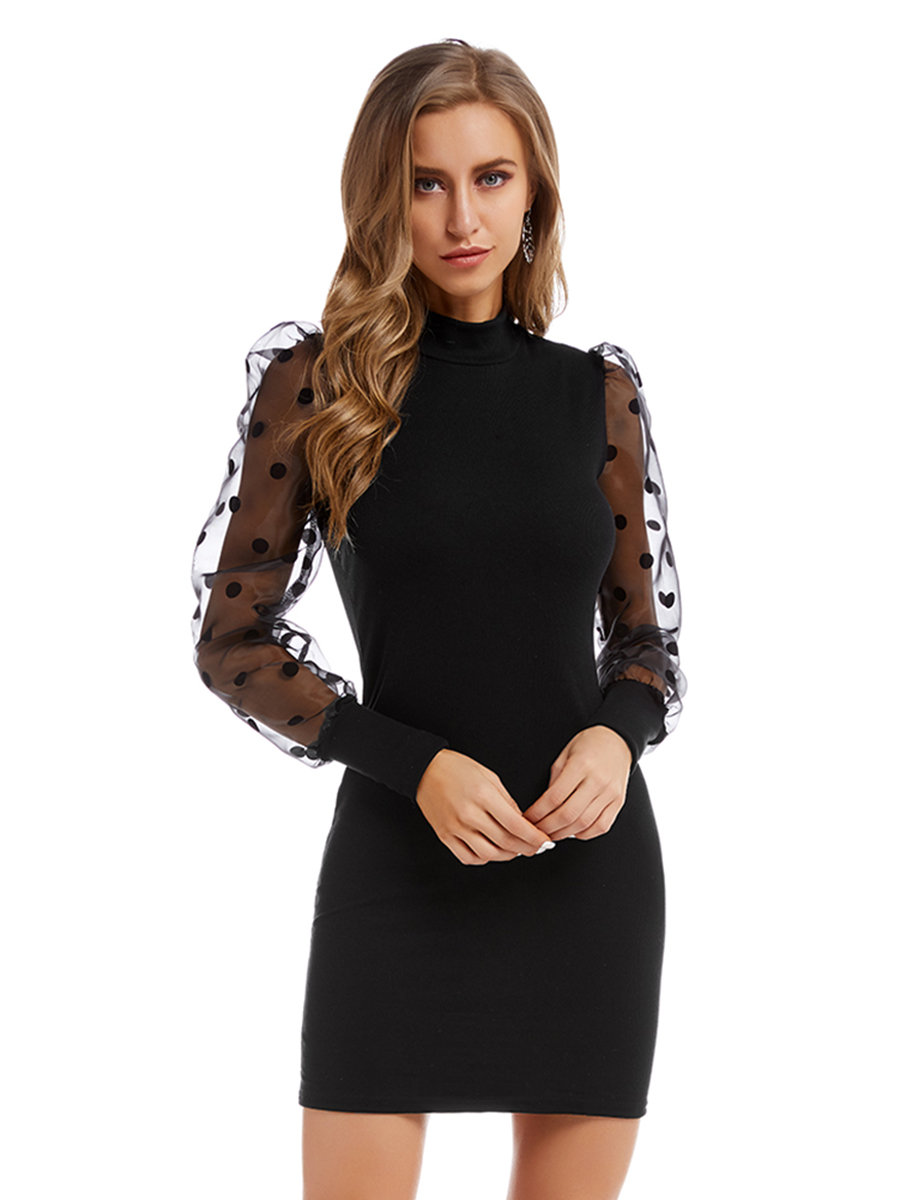Fashion isn’t about trends or aesthetics. Fashion is a way to express yourself. The way you dress speaks volumes about your emotions, aspirations, and even your personality. What we wear, will influence how we behave, how we feel, and how other people perceive us.
This is something referred to as “enclothed cognition”. It will highlight the deep psychological impact that clothing has on behavior and mood.
The psychological impact
There is research that shows that what we wear will affect our mindset and mood. For example, wearing cheerful and bright colors can boost happiness and energy. On the other hand, dark or muted tones evoke feelings of introspection or seriousness.
Clothing won’t just simply reflect your current state of mind but also it can shape it. Wearing outfits that align with your personal style and fit well, will enhance your self-esteem. When what you wear, makes you feel attractive and comfortable, you will project more confidence in various settings.

Image source: https://howlermag.com/clothes-affects-mood-attitude-confidence
Also, comfortable clothing like casual wear or soft fabrics, will promote relaxation and will also reduce stress. Overly tight garments or ill-fitting ones can increase irritability and discomfort. And they also can influence mood and productivity subtly.
Clothes also carry symbolic meaning to reinforce our aspirations and identity. Wearing athletic wear might motivate and cause feelings of discipline. On the other hand, a business suit can portray a sense of focus and authority.
Behavior and clothing
Clothing will also shape the way we behave in specific settings. Some psychologist argues that wearing certain types of outfits can make people adopt certain behaviors or mindsets, associated with the garments.
Formal clothing Is usually associated with more seriousness and professionalism. With formal attire, people will think more critically, approach tasks with discipline, and negotiate effectively. They serve as a mental cue for goal-oriented and structured behavior.

Image source: https://www.peperharowengland.com/blogs/fashion-blog/how-your-clothing-impacts-your-mood-and-confidence
On the other hand, casual outfits promote creativity and relaxation. Those who dress casually, tend to think freely and are much less constrained by any rigid structures. For artistic pursuits or brainstorming sessions, casual wear is ideal.
Uniforms, foster a sense of unity and purpose. They can also influence behavior by reducing distractions and promoting discipline.
The social dimension
What we choose to wear affects us internally but also influences the way other people interact and perceive us. This is known as impression management. Clothing is always one of the first things people will notice about you, and it forms lasting impressions in seconds. People who dress sharply will be perceived as reliable and competent. People who look disheveled can be looked at as unprepared or careless.
Image source: https://www.silkpillowcase.co.uk/blogs/news/the-benefits-of-wearing-comfortable-clothes
Fashion has also become a powerful tool to communicate social status, group memberships, and even cultural affiliations. Wearing a bespoke suit or a designer handbag usually signals sophistication and wealth. On the other hand, people who wear outfits that are inspired by subcultures show uniqueness and rebellion.
Believe it or not, clothes will also play a big role in romantic attraction. Wearing colors like red can make you look more approachable and attractive. Also, tailored outfits will enhance your physical features and influence how potential partners perceive you.
Emotional well-being
This relationship extends beyond the aesthetics. Certain types of clothing have calming and therapeutic effects which contribute to your overall mental health.
Power dressing involves wearing outfits that exude control and authority. They can boost feelings of resilience and empowerment. Cozy loungewear will encourage relaxation and will signal the brain that it is time to unwind. This is the reason, why some people associate some outfits with leisure and comfort.

Image source: https://gocolors.com/blogs/news/fashion-and-mental-health-how-your-outfit-choices-can-impact-your-mood
Usually, during tough times, people turn to clothing for emotional support. Wearing some sentimental piece can provide comfort and remind individuals of positive experiences with their loved ones.
The societal and cultural influence
Cultural norms as well as societal expectations shape the way clothes influence our behavior and mood. In some cultures, wearing traditional attire provides a send of belonging and pride. In others, fashion trends will dictate what’s desirable and acceptable.
Wearing traditional clothing will enhance the feelings of community and identity. Also, choosing to wear unconventional outfits, meaning breaking the norms, can be empowering and it can also signal individuality. This is evident in fashion movements or subcultures that reject mainstream norms.




